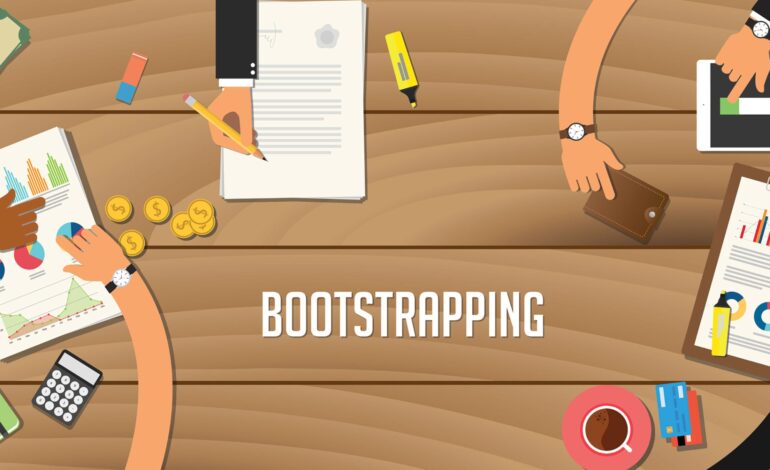
As a business owner, you know that sustainability is critical to your success. It’s one of the most important elements in your business model: if you don’t have a sustainable product or service, then you won’t be around for long. But what does it mean for your business to be sustainable?
Sustainability is about more than just environmental impact—it’s about making sure your product or service can survive long-term without compromising quality or customer satisfaction. It’s about being able to keep up with changes in technology and consumer expectations without going out of business. It’s about knowing that when you make decisions today, they won’t come back to haunt you tomorrow because they weren’t thought through properly at the time.
Incorporating sustainability into your business practices can have numerous benefits, including:
Cost savings
Sustainable practices can help reduce waste, improve energy efficiency, and minimize the use of natural resources. This can lead to lower operational costs, which can have a positive impact on your bottom line. You may be surprised to learn that some of the most common sustainable practices are actually quite cost-effective. For example, recycling paper is one of the easiest ways to save money without sacrificing sustainability.
In addition to savings on paper products, you can save money on energy costs by turning off lights when they’re not needed or running computers at night instead of during the day.
Improved brand reputation
The world is changing. Consumers today are increasingly concerned about the environmental impact of the products they purchase. By demonstrating a commitment to sustainability, you can improve your brand reputation and attract environmentally conscious customers.
Sustainability is no longer just a buzzword—it’s a way of life for many people. If you want to survive in today’s market, it’s time to focus on sustainability and become an industry leader in this area. To do this, you’ll need to:
- Make sure that all of your products are made with recycled materials, or at least using sustainable production processes and manufacturing methods that don’t harm the environment
- Offer products that meet strict environmental standards and help consumers reduce their carbon footprints
Increased employee engagement
When employees feel that their employer is making a positive impact on the world, they’re more likely to be engaged and committed to their work. Incorporating sustainability into your business practices can help boost employee morale and retention.
When you choose to incorporate sustainability into your business practices, you are sending an important message to your employees: both current and potential. First of all, it shows that you care about the environment and want to do whatever is in your power to protect it. Second, it shows that you care about the well-being of your workers and want them to feel safe and respected at their jobs. Third, it shows that you care about what kind of company you’re building—and that’s something that will come back around in spades when those same employees are looking for new jobs or just looking forward to starting with a new company.
Access to new markets
Many governments and businesses are now prioritizing sustainability in their procurement processes. By demonstrating your commitment to sustainability, you can access new markets and increase your competitiveness. It’s important to understand that the global economy is changing rapidly, and so are consumer preferences. Consumers are increasingly concerned about the impacts of business on the environment. They want to know that the products they buy have been made responsibly, and they expect companies to be transparent about those impacts.

There are many ways to demonstrate your commitment to sustainability—the best way depends on your business model, but all of them will help you gain access to new markets and increase your competitiveness in the long run.
Mitigated risks
When you adopt sustainable practices, you can reduce your exposure to environmental risks and potential regulatory penalties. This can help protect your business from financial and reputational damage.
Environmental risks are something your business needs to be aware of. As the world becomes more digitalized and environmentally conscious, there are more and more regulations being put in place to protect our planet. In order to stay ahead of these regulations, businesses need to be proactive about reducing their carbon footprint by adopting sustainable practices.
Overall, incorporating sustainability into your business practices can not only benefit the environment but also provide long-term benefits for your business. If you are starting a new business, it’s important to think about how you will incorporate sustainability into your new company from the beginning.
If you already have a company, sustainability is something that can be worked in over time as you see fit. It’s not an overnight process but one that requires planning and commitment. Incorporating sustainability into your business practices will help keep our planet healthy and our resources available for future generations.
RUCHI RATHOR Founder & CEO
Payomatix Technologies Pvt. Ltd.
FOUNDER AND INVESTOR | PAYMENTS PROCESSING EXPERT | MERCHANT ACCOUNT SOLUTIONS | WHITE LABELLED PAYMENT GATEWAY | Dreamer, Creator, Achiever, Constantly Evolving
Website Ruchi Rathor: https://ruchirathor.com
Website Healing Heart https://thehealingheart.me/
Instagram https://www.instagram.com/_ruchirathor_/
LinkedIn https://www.linkedin.com/in/ruchirathor12/
Facebook https://www.facebook.com/ruchi.rathor.magnificient
Tumblr https://www.tumblr.com/blog/ruchirathor-thehealingheart
Medium https://medium.com/@ruchirathor_23436









